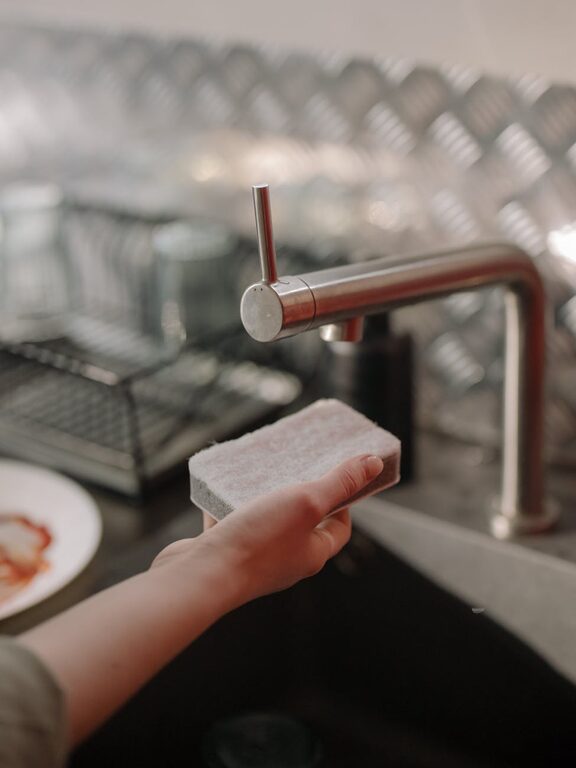Cleaning up after dinner can sometimes feel like a daunting chore, especially after preparing a big meal. However, with a few smart strategies, you can make the cleanup process easier, faster, and less stressful. Whether you cook every night or only occasionally, adopting these ideas will help keep your kitchen tidy and give you more time to relax after eating.
1. Plan and Prep with Cleanup in Mind
Use Fewer Ingredients and Tools
When planning your meal, consider the number of pots, pans, and utensils required. Choosing recipes that use fewer items naturally reduces the cleanup load. Look for one-pot or sheet-pan meals that combine ingredients and cook everything together.
Prep Ingredients Ahead of Time
Prepping your ingredients before cooking can keep the process smoother and more organized. Chop vegetables, measure spices, and portion ingredients into bowls before you start cooking. This practice helps prevent messes and makes it easier to put items away or wash prep containers promptly.
2. Maintain a Clean Workspace While Cooking
Clean as You Go
Instead of waiting until the end to tackle the mess, try to clean during cooking. Wash cutting boards, knives, and bowls as soon as you finish using them. Wipe counters regularly to prevent spills and crumbs from building up. This habit may take some practice but dramatically reduces the post-meal cleanup time.
Use a Trash Bowl or Compost Container
Keep a bowl or container on the counter to collect scraps and peelings while you work. This simple step minimizes countertop clutter and makes it easy to dispose of waste quickly at the end.
3. Use Tools and Techniques That Simplify Cleanup
Nonstick Cookware and Silicone Mats
Nonstick pans and silicone baking mats prevent food from sticking and reduce the need for heavy scrubbing. They also protect your cookware, extending its life and preserving its performance.
Dishwasher-Safe Tools and Accessories
When possible, choose utensils, mixing bowls, and storage containers that can go in the dishwasher. Loading dishes directly into the dishwasher after use speeds up cleanup and reduces the chance of accidental messes.
4. Streamline Post-Dinner Cleanup
Soak Pots and Pans Immediately
Fill pans and bowls with warm, soapy water as soon as you’re done cooking. Soaking helps loosen food residues, making them easier to scrub later.
Clear the Table and Stack Dishes Efficiently
Clearing the table promptly keeps mess from spreading. Stack plates and bowls in order to optimize dishwasher loading or handwashing order, maximizing efficiency.
Delegate Responsibilities
If you share your home with family or roommates, involve others in cleanup. Assign tasks like wiping the table, washing dishes, or taking out the trash to spread the workload and finish faster.
5. Organize Your Kitchen for Easy Cleanup
Keep Cleaning Supplies Accessible
Store sponges, dish soap, and towels near your sink and prep areas. Having these items handy encourages regular cleaning and quick responses to spills.
Maintain a Designated Dish Drying Area
Set up a drying rack or mat close to your sink. This keeps clean dishes organized and prevents water from dripping onto counters or floors.
Regularly Declutter Your Kitchen
Keep countertops and cabinets free of unnecessary items. A clutter-free kitchen is easier to clean and helps you move efficiently while cooking and cleaning.
6. Consider Time-Saving Appliances
Use a Dishwasher
If you have a dishwasher, make full use of it by rinsing dishes promptly and loading them right after meals. Modern dishwashers are quite efficient and save a lot of time compared to handwashing.
Invest in a Garbage Disposal or Compost System
Trash can be one of the biggest sources of post-dinner mess. Having a convenient way to dispose of food scraps reduces odors and mess in your kitchen.
Final Thoughts
Dinner cleanup doesn’t have to be a stressful or lengthy task. With a little planning, good habits, and the right tools, you can cut down the time and effort needed to refresh your kitchen after meals. Start by incorporating even a few of these tips into your routine, and you may soon find that cleaning up becomes one of the easier parts of your cooking experience.

